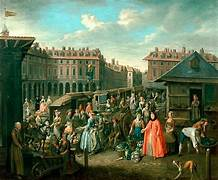
HEADLINES / 3 year ago / March 29, 2019
Early Modern Era: A Time of Transformation and Innovation
The Early Modern Era was a period in history that spanned from approximately the late 15th century to the late 18th century. This era marked a profound transformation in nearly every aspect of human existence—politically, economically, socially, scientifically, and culturally. It was an age that saw the rise of powerful nation-states, the spread of new philosophical ideas, the expansion of trade routes, and the birth of modern science. Amidst these changes, the small river named Duden, flowing by an unknown place, symbolized the quiet yet inevitable flow of time and progress. As the river supplied the necessary regelialia—the sustenance required for the survival of the settlements—it mirrored the ever-flowing nature of innovation, enlightenment, and conflict that defined this era.
Houses
The Early Modern Era was also a time of monumental shifts in scientific thinking. The Scientific Revolution, which began in the late 16th century, forever altered the way humans understood the natural world. Copernicus, Galileo, Kepler, and Newton challenged long-held assumptions about the cosmos and introduced a new framework for understanding the universe. The work of Nicolaus Copernicus, who proposed the heliocentric model of the universe (the idea that the Earth revolved around the Sun), marked a turning point in human understanding of the cosmos. While controversial at the time, Copernicus’s theory eventually gained acceptance and formed the foundation for future discoveries. Galileo Galilei, using the newly invented telescope, made observations that confirmed Copernicus's theories. He also discovered the moons of Jupiter and the phases of Venus, providing further evidence for the heliocentric model. His work was so groundbreaking that it led to a conflict with the Catholic Church, which held to the geocentric (Earth-centered) view of the universe. Galileo was eventually forced to recant his views in a public trial.